Elections officials reported light voter turnout Tuesday afternoon, as polling places opened across Maine and voters cast ballots in dozens of state primary races as well as local elections.
Secretary of State Shenna Bellows visited several polling locations across the state Tuesday, with stops scheduled in Biddeford, South Portland and Hampden.
After visiting polling stations in southern Maine, Bellows said turnout appeared to be low, which she attributed to the absence of contested primaries for governor. Bellows expected higher turnout in the northern part of the state because of the 2nd Congressional District Republican primary.
“Turnout is very light,” Bellows said shortly before noon. “Of course, we would expect to see turnout lighter in southern Maine than in northern Maine, given there are no top-of-the ticket primaries, but it’s still seemingly remarkably low as of this morning.”
As of Monday, only 32,384 absentee ballots had been requested statewide, with more than 25,000 returned. Bellows said that’s fewer than last year’s statewide referendum-only election.

Voters fill out their ballots Tuesday at the Ward 3 polling place in the Augusta Civic Center. Joe Phelan/Kennebec Journal
Bellows said her office has not received reports of any issues at the polls. While disappointed that more people weren’t voting, she said the low turnout election is a good practice run for newly hired clerks, ahead of the fall elections.
“We anticipate that November will be a very high turnout election given that you have two statewide leaders facing off against each other in the gubernatorial (election),” she said. “We have seen some turnover of clerks across the state, so some of our clerks are running an election for the first time. This is a great way for them to go through the entire process step by step before November.”
Voter turnout in Waterville mirrored much of the rest of the state with only about 200 people casting a ballot at Waterville Junior High School by 1 p.m., according to City Clerk Patti Dubois and Election Warden Roland Hallee.
Dubois said the city has about 13,000 registered voters.
“It’s been trickling in all day,” she said. “We had only 250 absentee ballots, so that’s a very low number.”
Former Gov. Paul LePage and his wife, Ann, of Edgecomb showed up outside the school around 1 p.m. to greet voters. LePage, who was a Waterville city councilor and then mayor before becoming governor, said he wanted to stop by to see how things were going with the primary. LePage, a Republican who served as Maine governor from 2011 to 2019, is running unopposed in the Republican primary, setting him up for a challenge against Democratic Gov. Janet Mills in November.

Former Republican Gov. Paul LePage and his wife, Ann, greet Waterville attorney David Geller, left, outside Waterville Junior High School on Tuesday during primary voting. LePage, who in running unopposed in the Republican nomination for governor, was a city councilor and Waterville mayor before his gubernatorial tenure from 2011 to 2019. He’s seeking a return to office by challenging Democratic Gov. Janet Mills in the general election in November. Amy Calder/Morning Sentinel
He shook hands with Waterville attorney David Geller, a longtime resident of the city who turned out to vote. “You got my support 100%,” Geller told him.
Forty-year Waterville resident Martha Coury Patterson said she came to vote Tuesday because it is her civic duty.
“I have never missed a vote,” she said. “It’s a privilege.”
State Rep. Bruce White, D-Waterville, who represents District 109, was the only other candidate standing outside the polls Tuesday afternoon.
White, who is running unopposed for his seat, said he had been there talking with voters since Tuesday morning and he thought turnout was light because there were so many uncontested races.
“It’s probably to be expected,” he said. “But it’s great to see people out who are able to get here. I think what people are saying is that they want the parties to work together to get things done.”
Voting in Skowhegan was “a little slow,” according to Town Clerk and Treasurer Gail Pelotte. Voting was held in the council room of the municipal building.
Pelotte said absentee ballots were down this year. More absentee ballots were submitted over the course of the COVID-19 pandemic, but that number has dropped.
“I was surprised to see absentee ballots were down this year. I’m thinking maybe because people want to come in and get back to in-person voting,” Pelotte said.
In neighboring Madison, turnout was steady through the day, according to Town Clerk Kathy Estes, who reported around 250 ballots by mid-afternoon at the election site at the Old Point Avenue School.
There are 26 legislative primaries scattered around the state as the parties choose their candidates for November’s general election, when every seat in the Legislature and the governor’s office will be up for grabs.
Most Maine communities are voting on whether to approve annual school budgets, and many communities also are electing municipal and school leaders.
Many also are watching the Republican congressional primary in Maine’s 2nd Congressional District, where former Rep. Bruce Poliquin is facing off against Liz Caruso of Caratunk. Poliquin greeted voters Tuesday along with state Sen. Matt Pouliot, R-Augusta, outside the Ward 1 polling place in The Buker Center in Augusta.

State Sen. Matt Pouliot, R-Augusta, left, and 2nd Congressional District Republican candidate Bruce Poliquin greet a voter Tuesday outside the Ward 1 polling place in The Buker Center in Augusta. Joe Phelan/Kennebec Journal
The Republican primary winner will take on two-term U.S. Rep. Jared Golden of Lewiston and Tiffany Bond of Portland in the Nov. 8 general election. Golden won the job four years ago by narrowly defeating Poliquin in the first ranked-choice election held for a federal elected office.
This year’s legislative primary elections were only open to those who are registered with their respective political party. However, a new law that will take effect in 2024 means unenrolled voters, who account for about a third of Maine’s registered voters, will be able to participate in either a Republican or a Democratic primary election.
Morning Sentinel staff writers Amy Calder and Taylor Abbott and Portland Press Herald staff writer Randy Billings contributed reporting.
Send questions/comments to the editors.

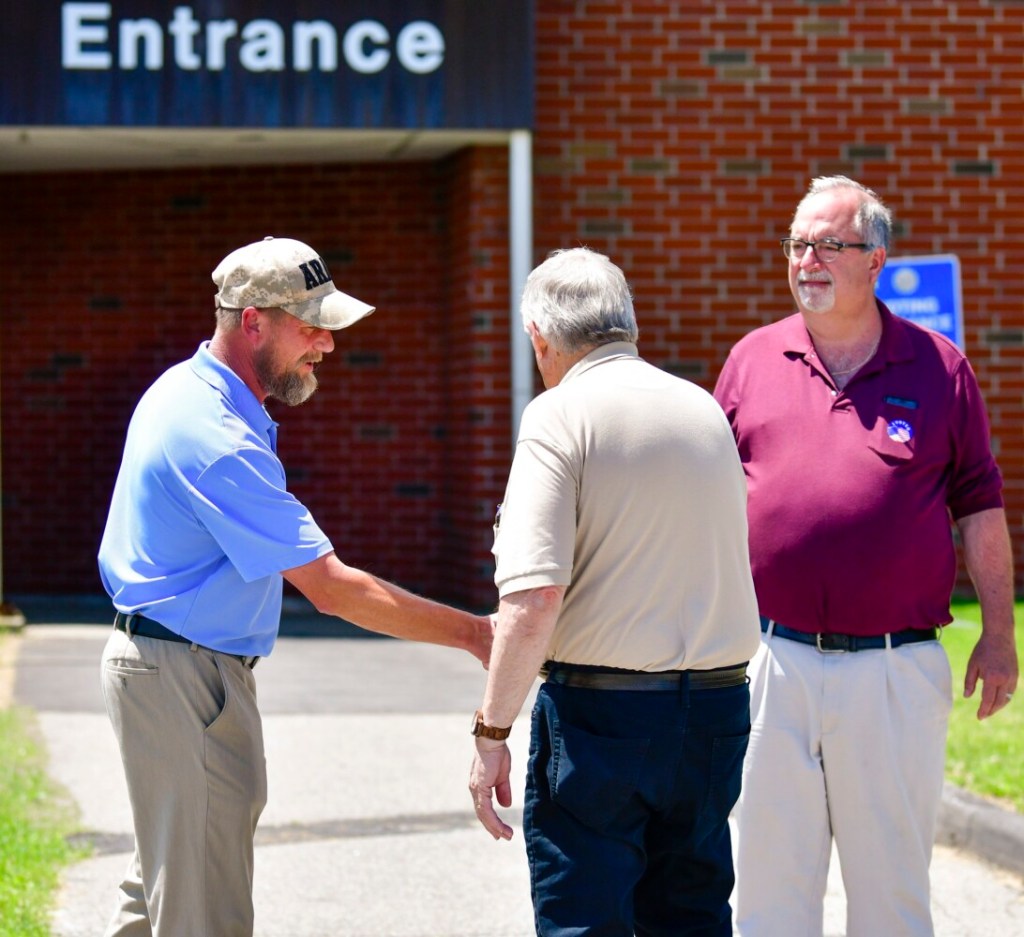
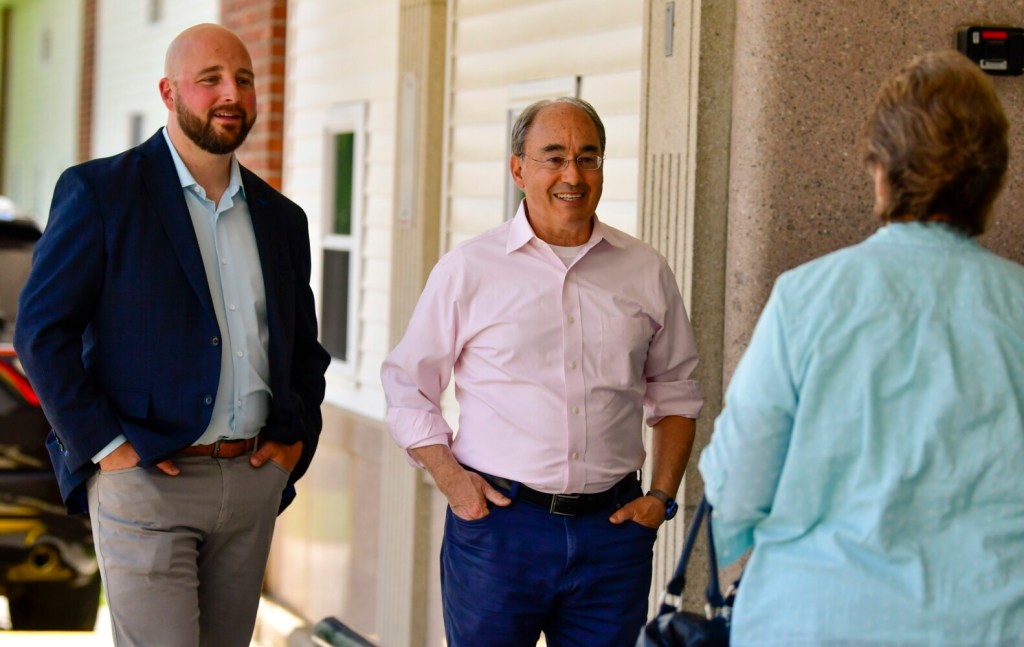
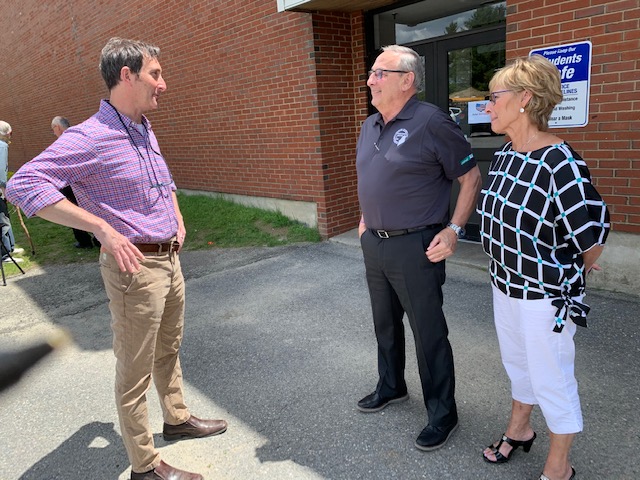

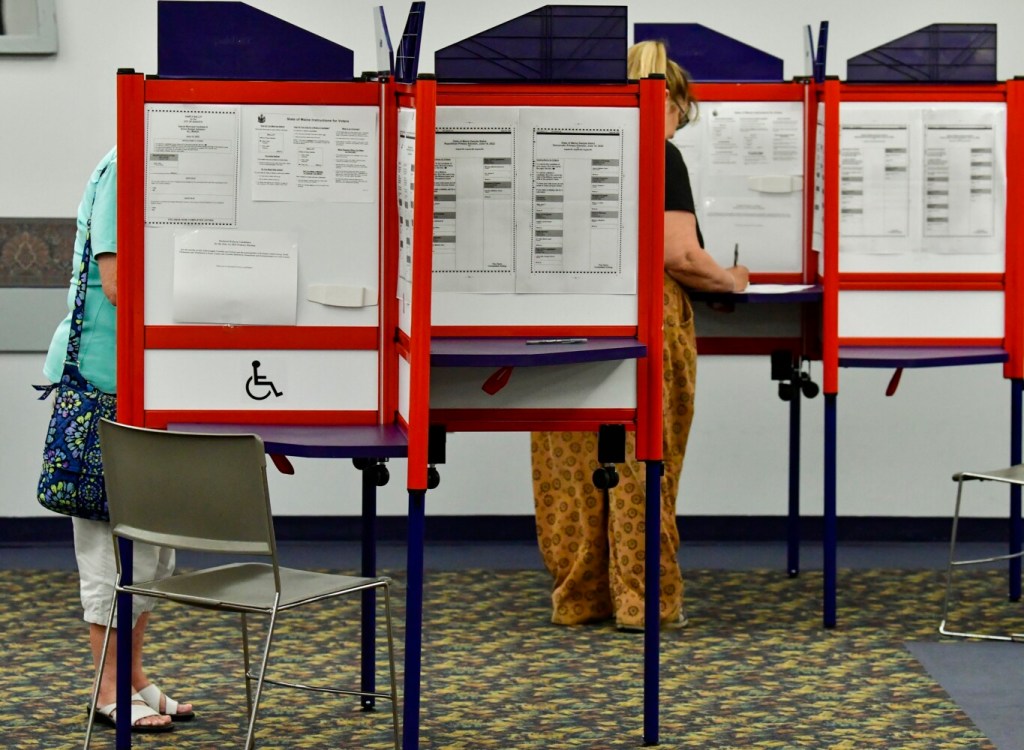
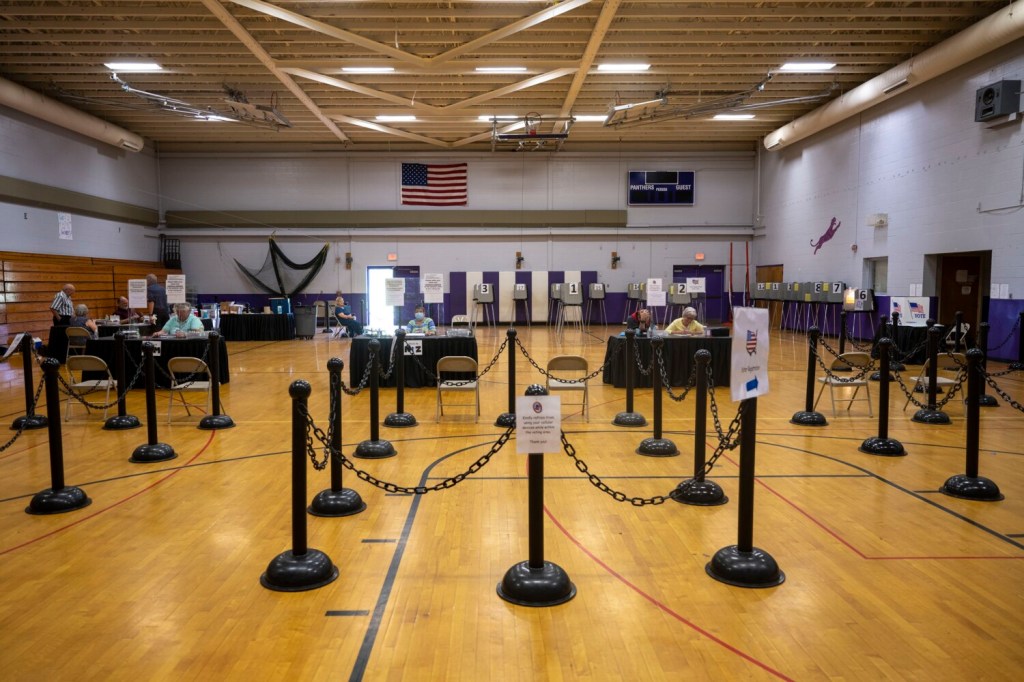
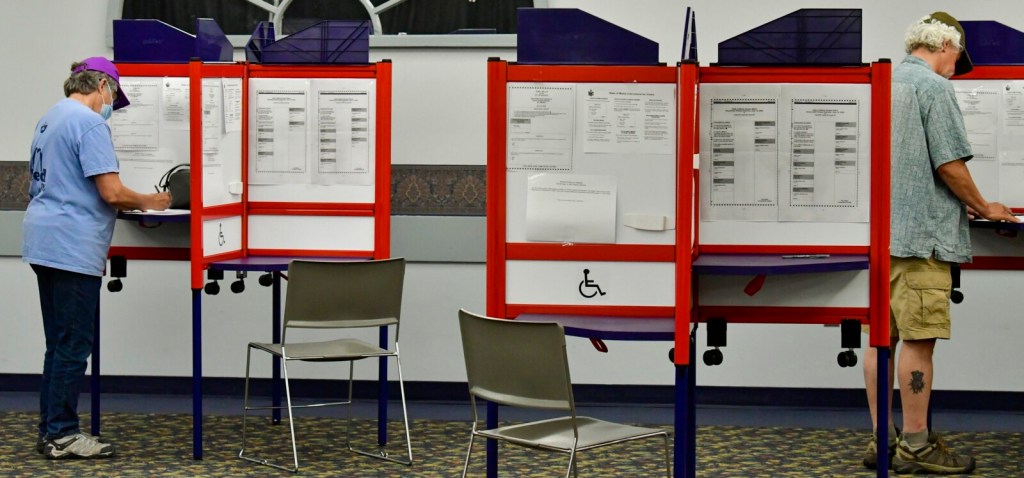
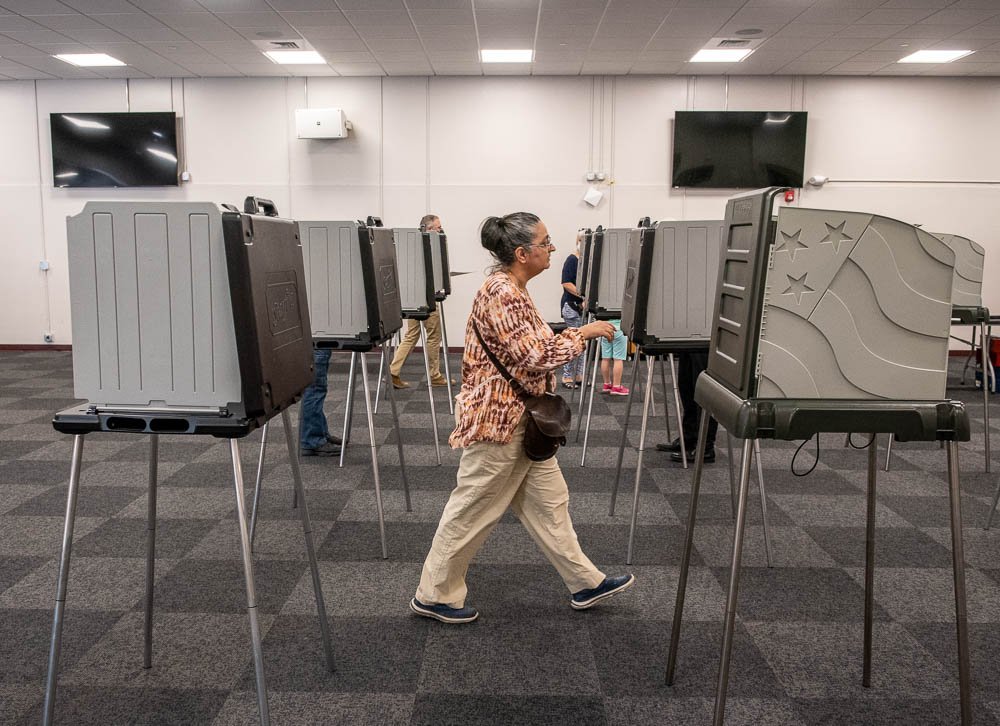
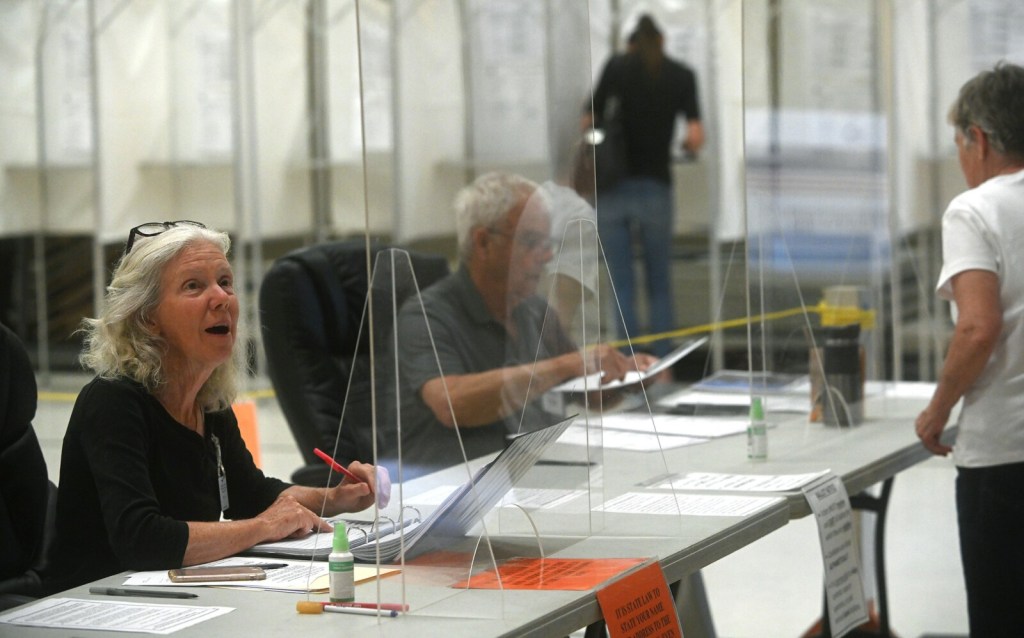
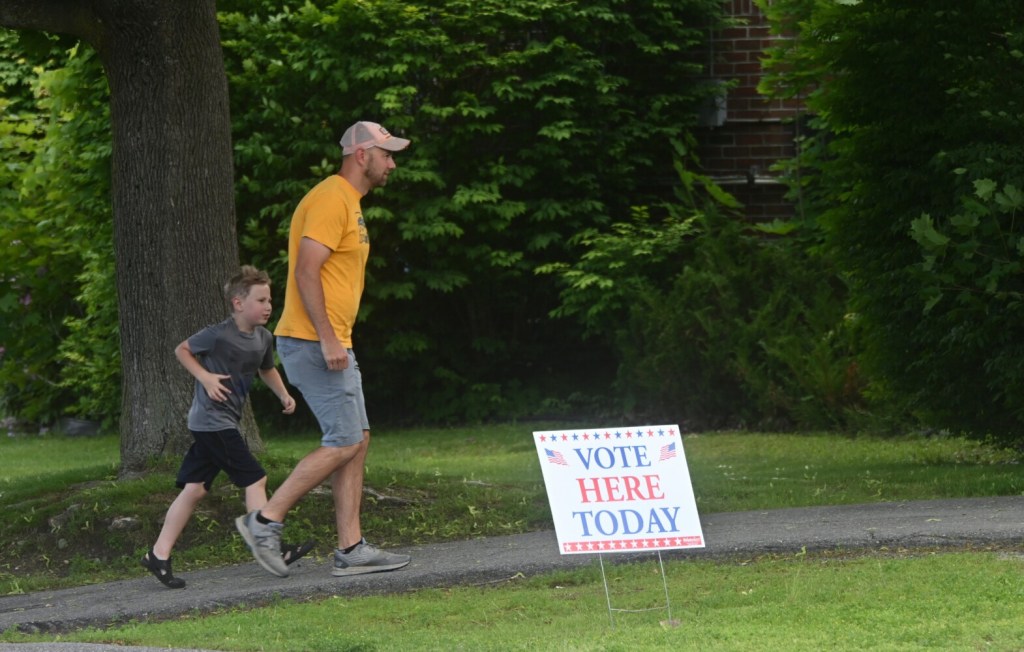

Comments are no longer available on this story